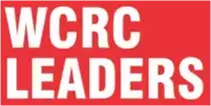US Hydrogen Fuel Cell Vehicle Market
ID: MRFR/AM/14113-US | 100 Pages | Author: MRFR Research Team| December 2023


The demand for hydrogen fuel cell vehicles (FCVs) in the United States is steadily growing, fueled by various factors contributing to the interest and adoption of these eco-friendly vehicles. Environmental consciousness stands as a primary driver behind the increasing demand for FCVs. FCVs, known for their zero-emission capability and potential to reduce greenhouse gas emissions, have garnered attention as a promising solution in the pursuit of a greener future.
Government support and initiatives are significantly boosting the demand for FCVs in the US. Federal and state-level policies, along with incentives and grants, aim to promote the development and adoption of hydrogen-powered vehicles. These measures include tax credits, rebates, and funding for research & infrastructure development, making FCVs more financially appealing and accessible to consumers.
The government's commitment to investing in hydrogen infrastructure, including the establishment of hydrogen refueling stations, plays a crucial role in driving consumer confidence and demand for FCVs. The automotive industry's innovation and commitment to advancing hydrogen FCV technology further contribute to the rising demand.
Major automakers invest in research and development to improve fuel cell technology, enhance vehicle performance, and reduce production costs. Continuous innovation leads to vehicles with longer ranges, quicker refueling times, and improved efficiency, addressing some concerns that have historically limited consumer interest in FCVs.
Despite these positive drivers, challenges persist in meeting the demand for FCVs in the US. Infrastructure remains a key hurdle. The limited availability of hydrogen refueling stations across the country restricts the convenience and practicality of owning an FCV. However, efforts are underway to expand the hydrogen refueling network, especially in regions with higher consumer interest and supportive policies.
The strategic placement and expansion of refueling stations can help meet the growing demand for FCVs. Cost considerations also influence the demand for FCVs in the US market. While technological advancements have led to reduced production costs, FCVs still tend to be more expensive upfront than traditional gasoline vehicles or even some electric cars.
Lowering production costs through economies of scale and technological advancements remains a priority to make FCVs more affordable and competitive. Consumer education and awareness initiatives play a vital role in shaping the demand for FCVs. Educating consumers about the benefits, performance, and sustainability of hydrogen FCVs is essential in dispelling misconceptions and fostering acceptance.
Increased awareness campaigns highlighting the long-term cost savings, environmental benefits, and overall reliability of FCVs are instrumental in driving consumer interest and demand. In conclusion, the demand for hydrogen fuel cell vehicles in the US is on an upward trajectory driven by environmental concerns, government support, automotive innovation, and increased consumer awareness.
Overcoming challenges related to infrastructure development, reducing production costs, and enhancing consumer education will be pivotal in meeting and further accelerating the demand for FCVs. As technology evolves and infrastructure expands, hydrogen FCVs are poised to play a key role in the transition toward a more sustainable transportation future in the United States.
© 2024 Market Research Future ® (Part of WantStats Reasearch And Media Pvt. Ltd.)